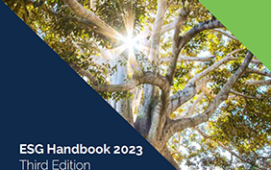The Committee on Payment and Settlement Systems (CPSS) and the Technical Committee of the International Organisation of Securities Commissions (IOSCO) have set up a working group to review the application of the 2004 CPSS-IOSCO Recommendations for Central Counterparties to clearing arrangements for OTC derivatives. The recommendations, which were developed by the CPSS and the IOSCO Technical Committee, set out standards for risk management of a central counterparty.
In recent years, there have been coordinated efforts by the public and private sector to improve bilateral clearing and settlement arrangements for OTC derivatives transactions. More recently, several existing, newly established, and proposed central counterparties (CCPs) have sought to provide central clearing and settlement services for OTC credit default swap (CDS) transactions, interest rate swaps, and other asset classes of OTC derivatives.
The CPSS and IOSCO believe that the expansion of centralised clearing and settlement is a positive development because, if well designed, CCPs can reduce systemic risk in financial markets. Accordingly, the relevant authorities for CCPs for OTC derivatives seek to ensure that each CCP meets the risk management standards set forth in the recommendations. However, applying the recommendations in practice can involve a significant degree of interpretation and judgment.
To promote consistent interpretation, understanding and application of the recommendations across CCPs for OTC derivatives, the working group has been formed to discuss key issues that can arise when CCPs, including the new CDS CCPs, provide central clearing services for OTC derivatives. Where necessary, the working group will propose guidance on how CCPs for OTC derivatives may meet the standards set out by the recommendations and will identify any areas in which the recommendations might be strengthened or expanded to better address risks associated with the central clearing of OTC derivatives.
Participants in the working group include representatives of the central banks that are members of the CPSS, representatives of the securities regulators that are members of the IOSCO Technical Committee, and representatives of the International Monetary Fund and the World Bank.
The working group will coordinate with other regulatory authorities and communicate with the industry, as appropriate, as the work moves forward.
Subscribe to our newsletter




